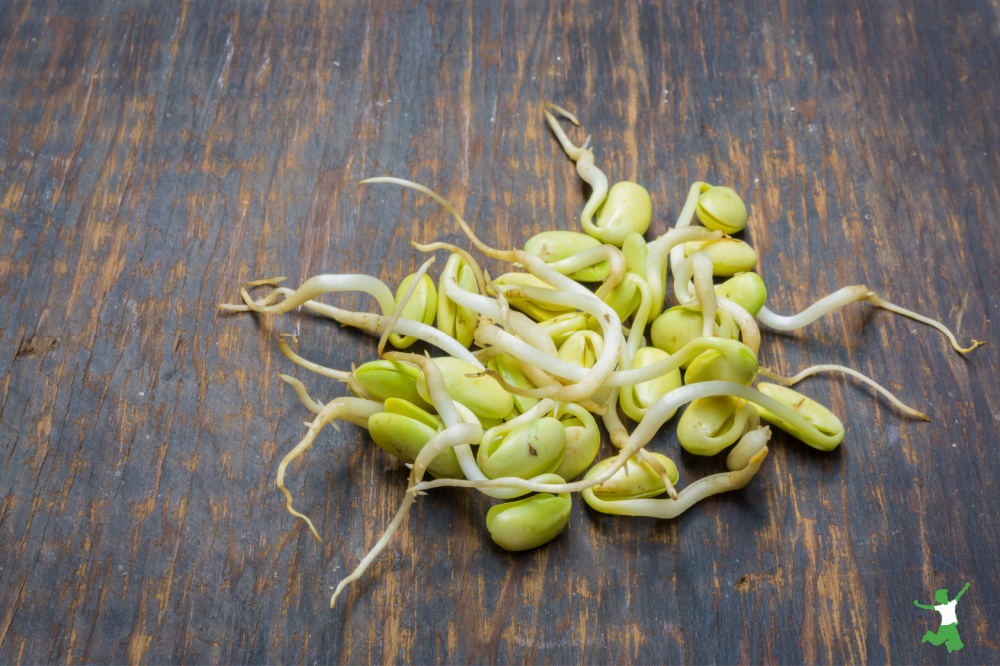The paradoxical reasons why sprouted soy contains more antinutrients than unsprouted versions and should be avoided in the diet to preserve gastrointestinal and hormonal health.

Great news abounds with regard to the public’s perception of soy.
There’s no doubt that more people than ever are getting the message that soy is not the “health food” that it is portrayed to be by conventional dietary authorities.
Soybeans in the diet pose a danger to health even in menopausal women.
This includes the innocuous green bean known as edamame.
The bad news is that a little information can sometimes be dangerous!
Sprouted Soy Myths
In this case, it appears that many who recognize that soy is an unhealthy food are under the mistaken impression that sprouted soy is fine to consume.
Or, just as bad, some believe that organic soy or soy that is certified GMO-free poses no problem to health.
Perhaps the healthy traditional practice of sprouting grains, legumes, and other seeds resulted in confusion about soy because it is a legume.
Or maybe it’s the GMO issue that is triggering confusion. Some seem to assume that the reason soy is bad is because nearly all of it is genetically modified.
Sprouting Soybeans Does Not Make Them Safe
Even food manufacturers are on the bandwagon of misinformation about this issue.
Some supposedly wholesome sprouted bread and pasta brands (like Ezekiel) include sprouted soy and actually market this as “healthy” on the label!
Some vegetarian and vegan websites are promoting recipes for sprouted soy milk as nutritious alternatives to (undigestible) regular soya milk and dairy.
Let’s set the record straight on this important issue.
Any form of soy with the exception of fermented nonGMO soy in small condimental amounts should be avoided in the diet.
Soy was an unhealthy food to consume long before the issue of GMO soy came into play.
The fact that most of the soy on the market these days is GMO just makes what was already an unhealthy food even worse!
With regard to sprouted soy, be on guard to avoid being fooled! It’s actually more harmful than unsprouted soy!
Traditional Uses of Soy Sprouts
Dr. Kaayla Daniel, author of The Whole Soy Story reveals why soy sprouts must be avoided in the diet:
Soy sprouts, by the way, are not healthy. Short-term germination increases the strength of soy‘s antinutrient fractions.[emphasis mine] In contrast, long-term sprouting plus fermentation will decrease and nearly eliminate them. (1)
She goes on to describe the historical usage of sprouted soy, which did not include regular consumption!
Soy sprouts are mentioned in historical accounts as useful, sometime pharmaceuticals, not as a daily food. (2)
Antinutrients Block Minerals
The Weston A. Price Foundation concurs, warning that high levels of phytic acid even in sprouted soy reduce the assimilation of calcium, magnesium, copper, iron, and zinc.
Phytic acid in soy is not neutralized by ordinary preparation methods such as soaking, sprouting and long, slow cooking. High phytate diets have caused growth problems in children. (3)
Phytic acid also blocks mineral absorption, causes digestive distress, and can contribute to tooth decay. The late Rami Nagel details this important information in his bestselling book Cure Tooth Decay.
In short, soy that is organic, nonGMO, and sprouted is not safe to eat. This is the case despite some food philosophies that embrace it as such.
The Only Safe Way to Consume Soy
NonGMO, fermented soy in small, condimental amounts as practiced in traditional Asian cultures is the only safe way to consume this legume. Those who have thyroid conditions should still avoid it, however, due to the goitrogens.
One of the most popular examples of cultured soybeans is miso. Sushi restaurants in Western countries seem to always feature miso soup on the menu (though it is usually GMO).
Tempeh, natto, and traditionally brewed soy sauce also fall under the healthy soy category. The nutritional benefits of natto, in particular, are unequaled by any other soy food.
Everything else soy? Just pass!
(1-2) The Whole Soy Story
(3) Soy Alert!








I was an ex tofu maker. I still like it and eat it once in a while. Frying it with a little shoyu and black pepper is really good and addicting.
I also eat it wih Rice and Tea dish. By mixing some Nama and Hot Mustard sauce and tossing green onions on it is irresistible and the favorite dish with tuna and daikon or pickled or other pickled and very delicious oriental pickled vegetables.
I don’t eat it all the time. But I do believe a little poison is good for you once in a while. Since Tofu is now considered an anti-food of sorts. Still hooked on it and gotta have it once in awhile.